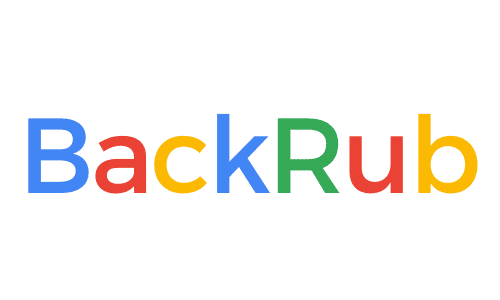Billions of people use Google every day. In fact, you probably searched the internet using Google to find this article.
Google, the major tech company headquartered in Mountain View, California, is without a doubt one of the greatest success stories of the modern era. The Google search engine is so well known that it has become a verb (‘Just Google it’), a mark of notoriety that almost no one else can claim.
But Google isn’t just known for being the go-to site to find web pages through their frighteningly accurate search results. The company is also well known as an excellent place to work, where top coders and analysts compete fiercely for coveted spots on Google’s engineering teams.
Surprisingly, the story of how Google got its name and what the term Google means isn’t well known.
So, put your English dictionary down because we’re about to give you the quick and dirty history of the word Google. We’ll also talk about how it became the name of the internet search engine that the world flocks to every day.
What Was Google’s Name Before?
The origins of Google have all but passed into tech-company legend. The story goes that Larry Page and Sergey Brin were two humble Ph.D. students at Stanford University. During their time at Stanford, they realized the potential of a new search engine platform for the growing Internet.

The pair was more brilliant at math and computer science than they were at naming companies, and they gave Google the working title of ‘BackRub.’ This name comes from the fact that Google works primarily by following backlinks from one website to another. Google uses information like on-page content and the number of links to and from a website to gauge how authoritative a site is and whether it’s relevant to a given search query.
Eventually, Page and Brin realized that BackRub is a truly terrible name, and they began casting about for alternatives.
What Is the Real Meaning of Google?
At some point in 1997, the core team behind Google was brainstorming ideas to replace ‘BackRub.’ They wanted an interesting word that adequately conveyed the truly enormous volume of information their search engine would process.
Finally, they proposed ‘Googolplex.’ To understand what a Googolplex is, we need to first learn what the word Googol means. ‘Googol’ is a mathematical term named by Milton Sirotta, mathematician Edward Kasner’s nephew. It means 10 raised to the power of 100, or 1 followed by 100 zeros. A Googolplex refers to a number of nearly incomprehensible size, and it is defined as ‘1 followed by a Googol of zeros.’
When mathematicians have tried to provide an intuition for how big a Googolplex is, they start talking about the number of electrons in the universe. Or, they might point out that if you printed a Googolplex of zeros on paper, the resulting books would weigh more than two galaxies combined.
To the future heads of Google, a Googolplex accurately represented the infinite amount of information they hoped to provide, but they preferred the shorter ‘Googol.’ Sean Anderson, another Stanford graduate student who was at the brainstorming session, did an Internet search for the name to see if it was available as a website domain.
But he misspelled it as ‘Google.’ Because google.com was available, and Larry Page liked the name, he registered it a few hours later. Thus, Google is a play on the term ‘Googol,’ which means a number of nearly incomprehensible size.
Therefore, this incorrectly spelled version of an arcane bit of mathematical trivia has become one of the most famous company names of all time.
Too Long; Didn’t Read?
That’s okay; here’s what you need to know.
FAQ
Google was originally called “Backrub” by Larry Page and Sergey Brin, two Ph.D. students at Stanford University.
Google was named after ‘Googolplex,’ or ‘Googol’ for short. The mathematical term (named by Milton Sirotta) means a number of nearly incomprehensible size. It represents the infinite amount of information that Google provides.
About us: Career Karma is a platform designed to help job seekers find, research, and connect with job training programs to advance their careers. Learn about the CK publication.



